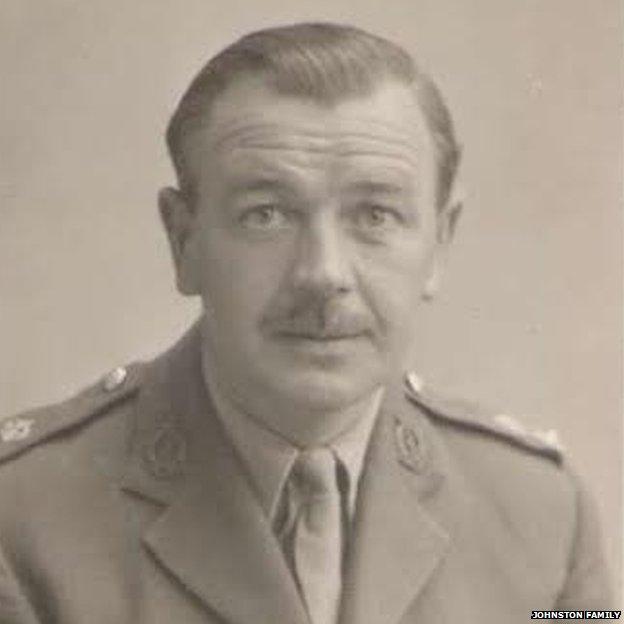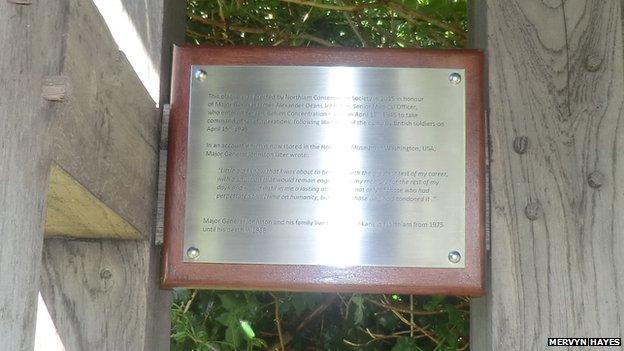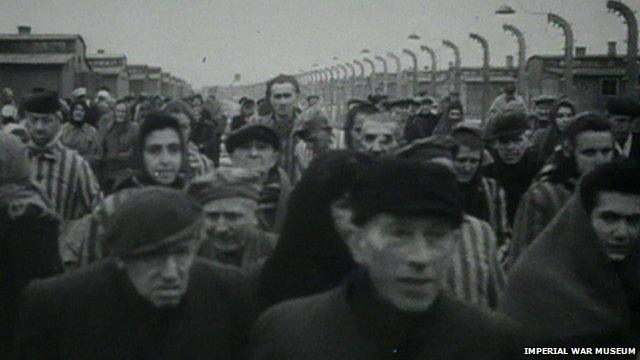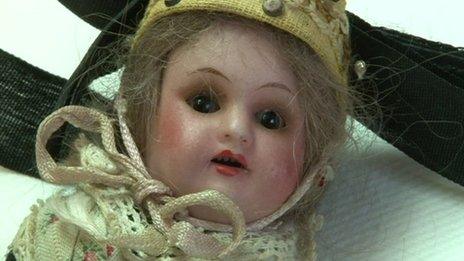Bergen-Belsen camp medic honoured in Northiam
- Published

Maj Gen James Johnston's experiences were so traumatic he blocked them out, his son said
A plaque has been unveiled in memory of an Army medical officer who treated prisoners at a German concentration camp in 1945 following its liberation.
Maj Gen James Johnston was faced with 40,000 prisoners at the Bergen-Belsen camp and set up a hospital to treat them for typhus, TB and starvation.
His son, Anthony Johnston, said: "He had to deal with people dying by the hundreds every day."
The plaque was unveiled in Northiam, East Sussex where Gen Johnston lived.
Born in Glasgow, he moved to the village with his family in 1973.
About 60 people, including members of Gen Johnston's family, gathered for the unveiling at the pump house on the village green.
Gen Johnston was commanding a mobile medical unit close to the German-Dutch border in April 1945.
He was ordered to move his unit to take charge of the sick and starving at Bergen-Belsen, which had just been liberated by the British.
Around 70,000 people had died at the camp in northern Germany.

More than 60 people, including members of Gen Johnston's family, attended the unveiling
Mr Johnston said his father had been reluctant to talk about his World War Two experiences, due to modesty and wanting to block out such a traumatic event.
"There were times in his life when former inmates, who he had come across at the time, got in touch with him and wanted to acknowledge him," Mr Johnston said.
"Other than that, he didn't talk about it."
In an account which is now in the Holocaust Museum in Washington, Gen Johnston wrote: "Little did I know that I was about to be faced with the greatest test of my career, with a situation that would remain engraved on my memory for the rest of my days.
"[It] would instil in me a lasting abhorrence not only of those who had perpetrated this crime on humanity, but also of those who had condoned it."
- Published15 April 2015

- Published8 February 2012
